Abstract
Heating Staphylococcus aureus MF31 at 55 C for 15 min renders the organisms unable to reproduce on agar containing 7.5% NaCl (1). The heated organisms exhibited an extended lag period during which the organisms regained their ability to grow on the 7.5% NaCl-agar. Inhibitor and antibiotic data indicated that protein synthesis is not involved in this recovery process but nucleic acid synthesis is suggested (3). The data presented here further substantiate the noninvolvement of protein synthesis during recovery and further demonstrate the site of the thermally induced nucleic acid lesion. Methylated albumin kieselguhr column analysis showed the lesion site to be the ribosomal ribonucleic acid (rRNA). The rRNA is resynthesized during the extended lag period. Sucrose gradient analysis demonstrated that a ribosomal peak was undetectable subsequent to the thermal treatment, but this peak was regenerated during the recovery period.
Full text
PDF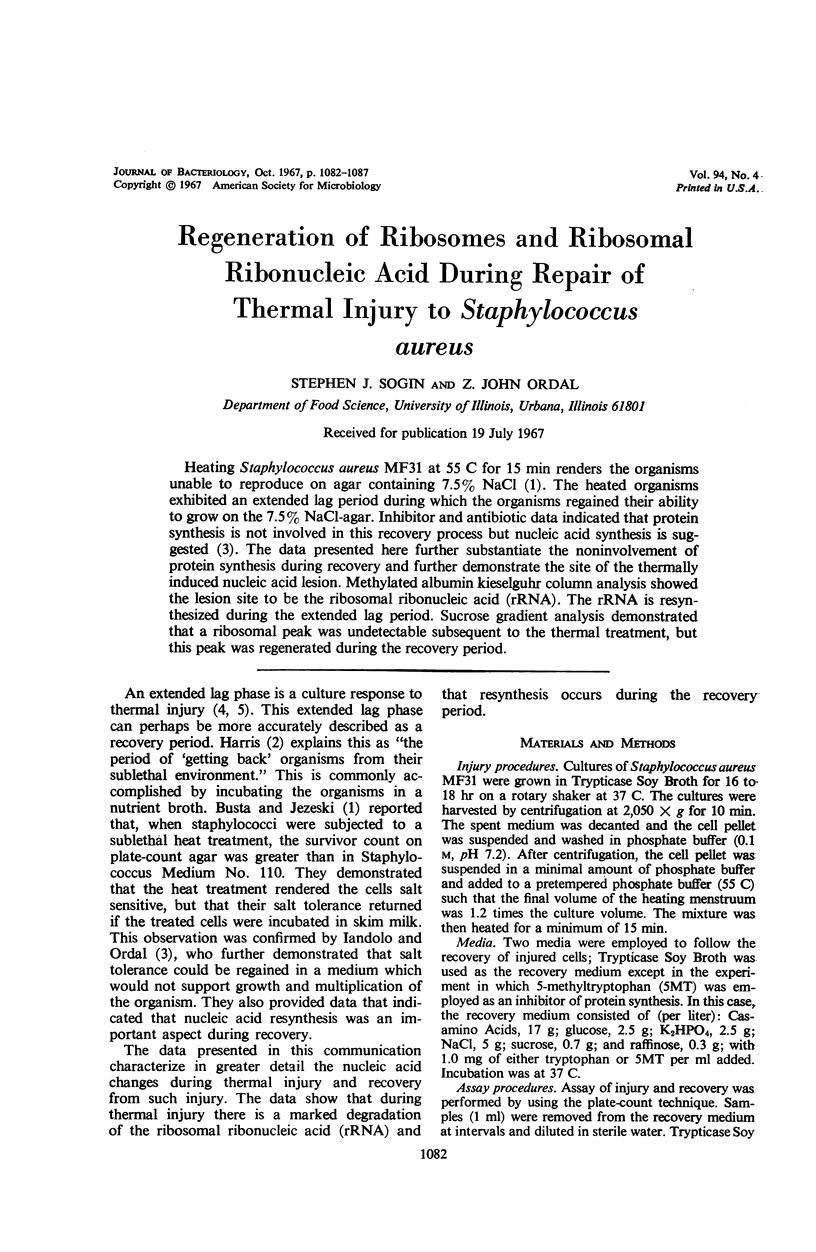
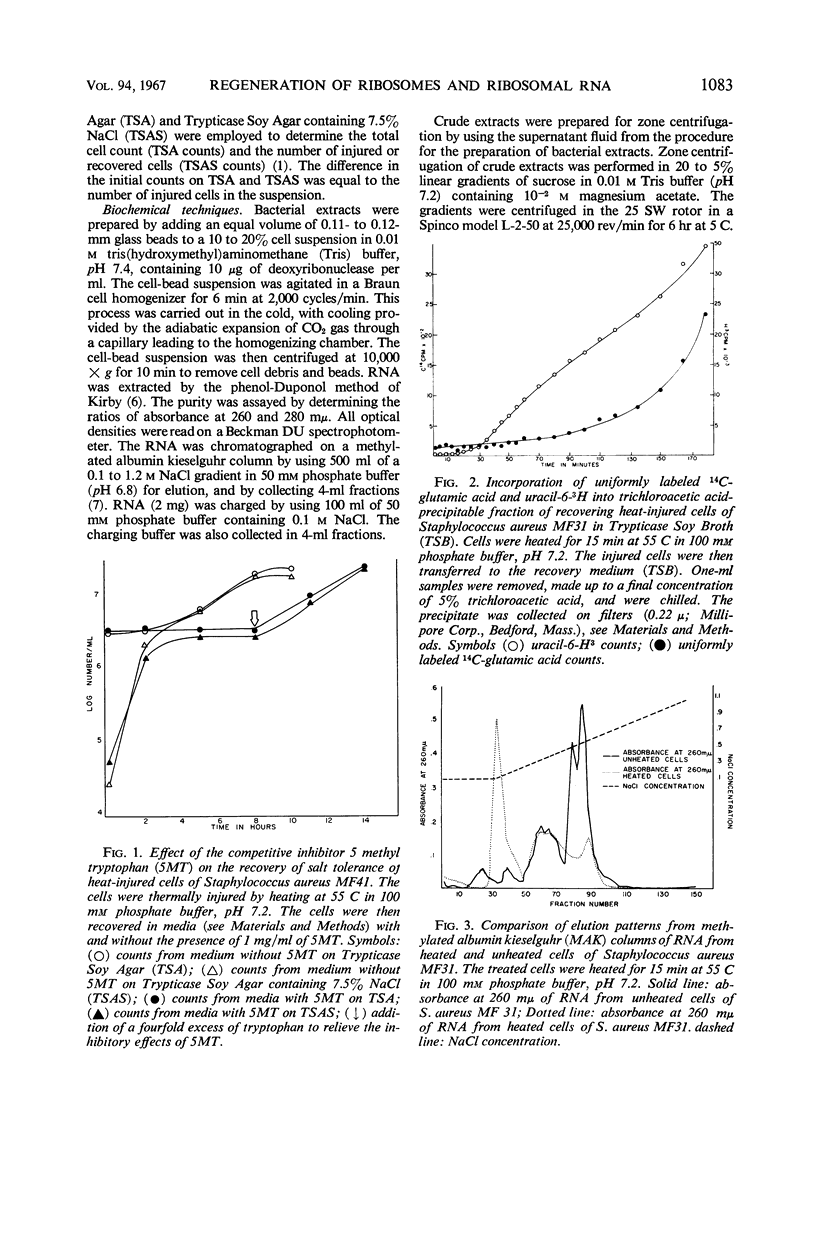
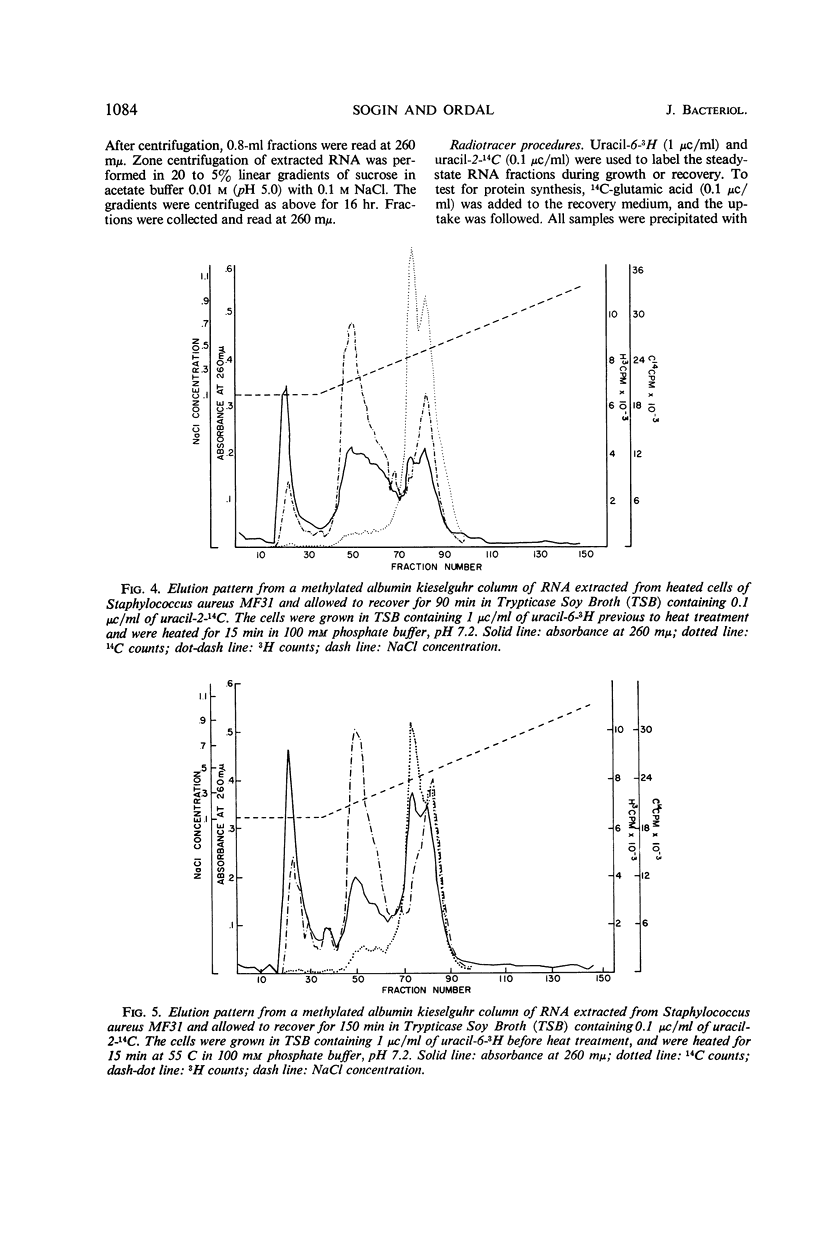
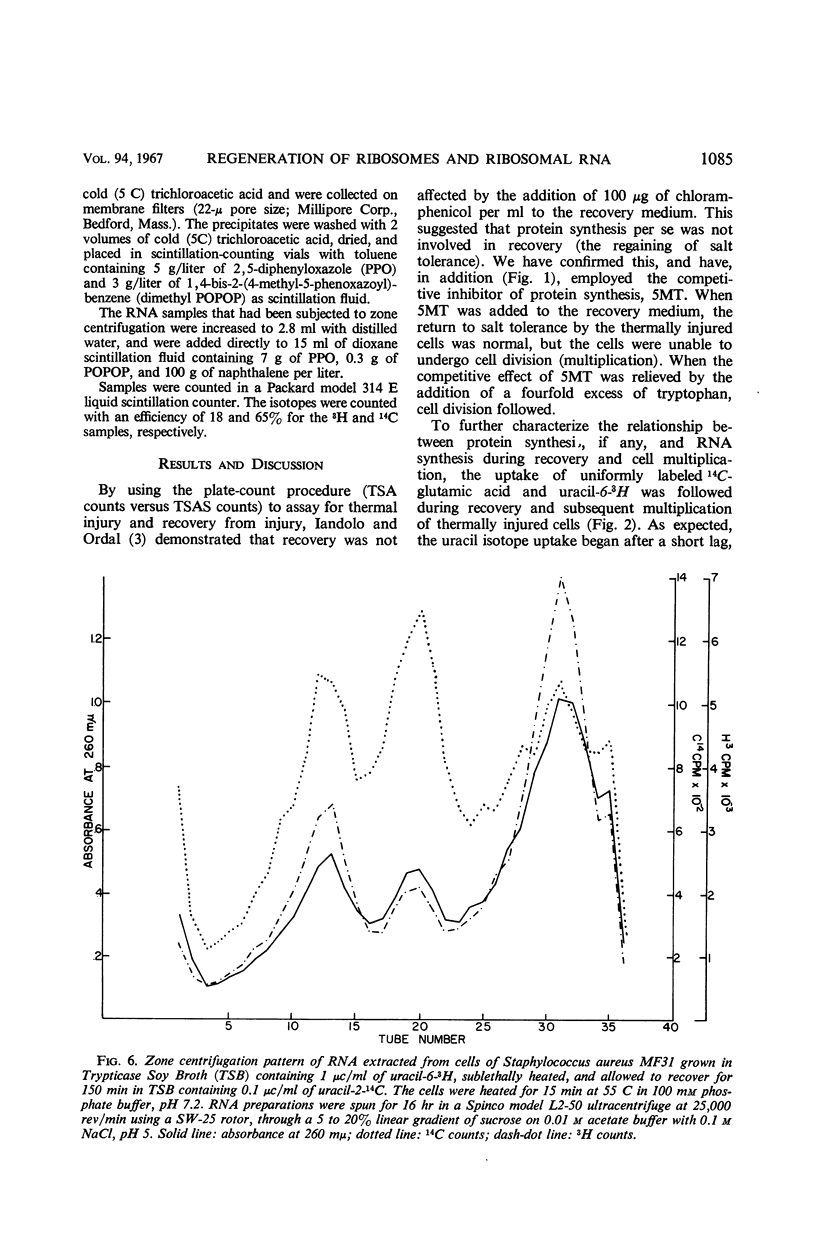
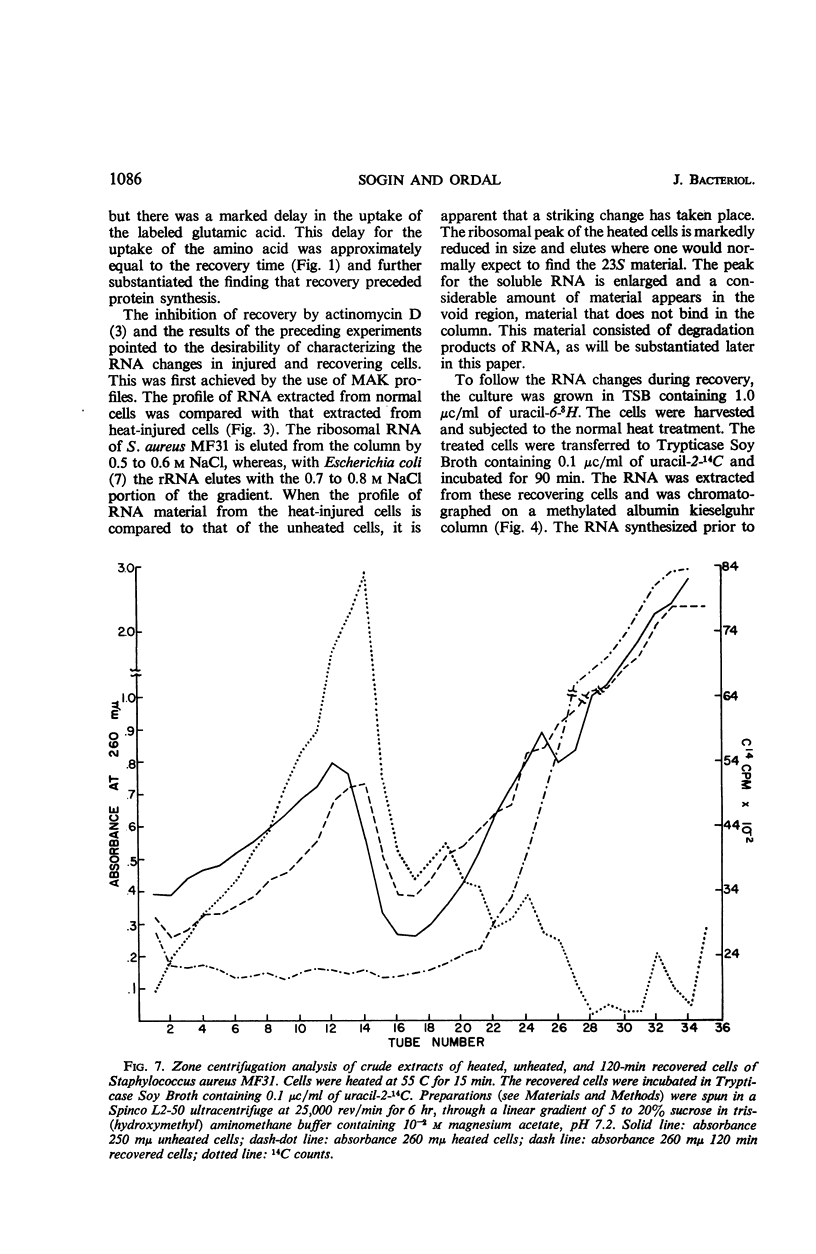
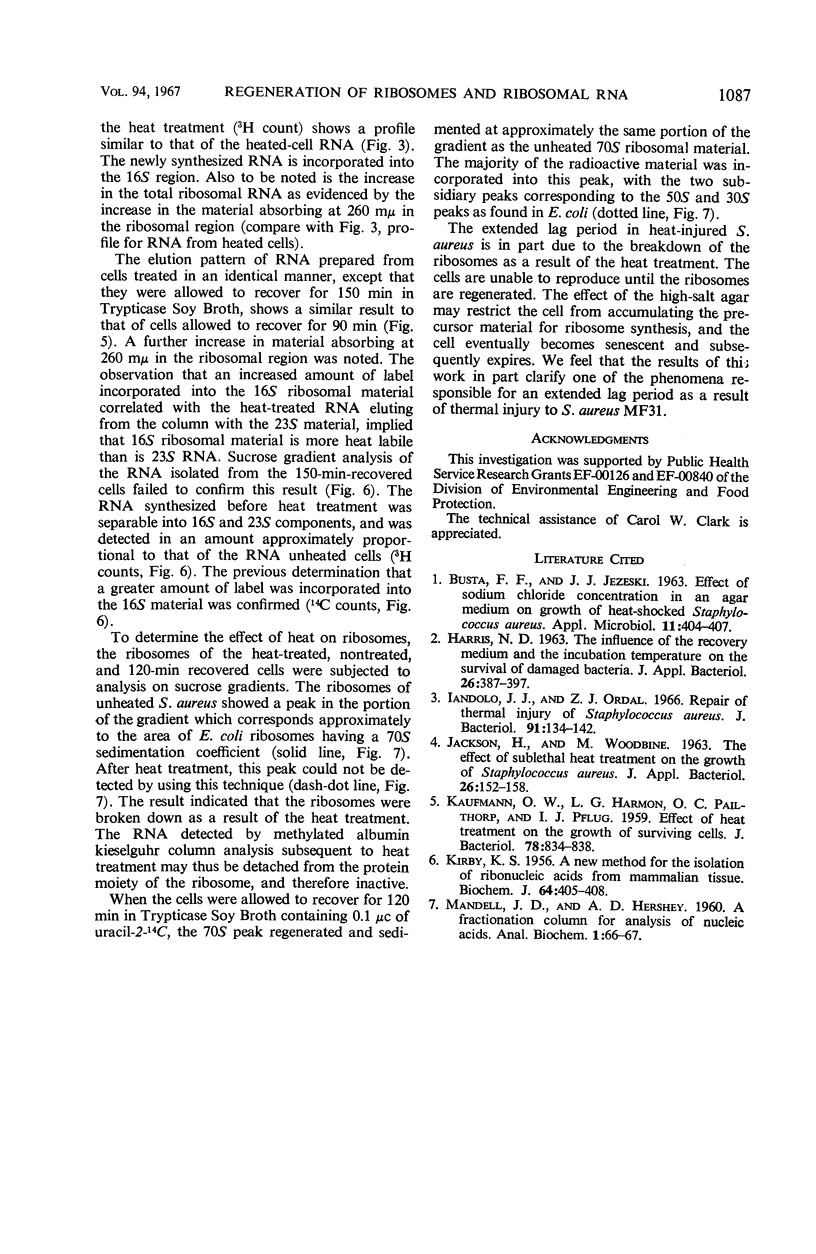
Selected References
These references are in PubMed. This may not be the complete list of references from this article.
- BUSTA F. F., JEZESKI J. J. EFFECT OF SODIUM CHLORIDE CONCENTRATION IN AN AGAR MEDIUM ON GROWTH OF HEAT-SHOCKED STAPHYLOCOCCUS AUREUS. Appl Microbiol. 1963 Sep;11:404–407. doi: 10.1128/am.11.5.404-407.1963. [DOI] [PMC free article] [PubMed] [Google Scholar]
- Iandolo J. J., Ordal Z. J. Repair of thermal injury of Staphylococcus aureus. J Bacteriol. 1966 Jan;91(1):134–142. doi: 10.1128/jb.91.1.134-142.1966. [DOI] [PMC free article] [PubMed] [Google Scholar]
- KAUFMANN O. W., HARMON L. G., PAIL THORP O. C., PFLUG I. J. Effect of heat treatment on the growth of surviving cells. J Bacteriol. 1959 Dec;78:834–838. doi: 10.1128/jb.78.6.834-838.1959. [DOI] [PMC free article] [PubMed] [Google Scholar]
- KIRBY K. S. A new method for the isolation of ribonucleic acids from mammalian tissues. Biochem J. 1956 Nov;64(3):405–408. doi: 10.1042/bj0640405. [DOI] [PMC free article] [PubMed] [Google Scholar]
- MANDELL J. D., HERSHEY A. D. A fractionating column for analysis of nucleic acids. Anal Biochem. 1960 Jun;1:66–77. doi: 10.1016/0003-2697(60)90020-8. [DOI] [PubMed] [Google Scholar]



